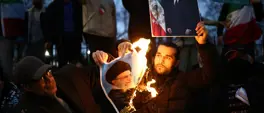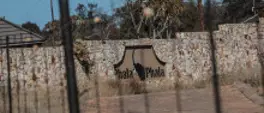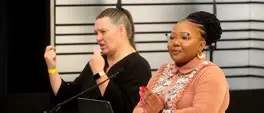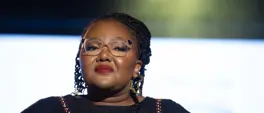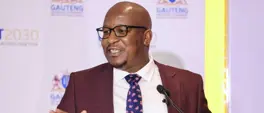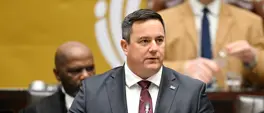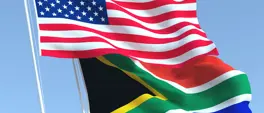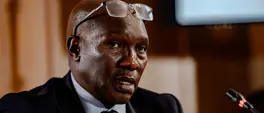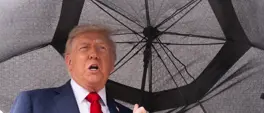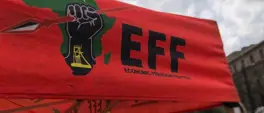LUKHONA MNGUNI | G20 Summit opens amid global upheaval and Trump’s boycott looms over 2026 handover
Guest contributor
21 November 2025 | 12:09"The US has been a reluctant participant in multilateralism since Trump was inaugurated. It would be an insult to take all the work achieved in the global South in the past four years to Trump’s unforgiving guillotine."
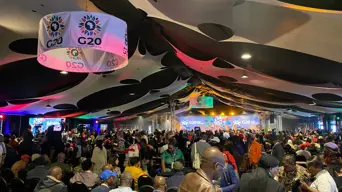
The opening ceremony of the G20 Social Summit at the Birchwood Hotel and Conference Centre in Boksburg on 18 November 2025. Picture: Lindsay Dentlinger/EWN
The G20 Leaders’ Summit is upon us. South Africa will put its best foot forward, without a doubt. We are one of the best events hosting countries in the world – our obvious specialty.
There have been over 100 meetings hosted, from SHERPA meetings to those of Ministers of Finance and Central Bank Governors. Some meetings have been across various engagement groups and working groups that focus on critical themes covering as many sectors as possible of society represented by non-government actors.
South Africa, taking lead from the G20 Brazil 2024, continued the newly invented forum – G20 Social – as a space for consolidation of different views to help influence the priorities reflected in the final declaration.
This year, the G20 Summit takes place during a period of unprecedented geopolitical tensions that are leading to the rearrangement of international relations among the countries of the world.
The assumptions of globalisation made at the dawn of the 21st century are either challenged or evaporated. Our global security architecture is showing weaknesses.
The United Nations is unable to broker peace, leaving these tasks to countries to use their diplomatic channels to attempt peace. Multi-track diplomacy is also faced with serious challenges as nation states fight hard to reinstate their authority as the sole actors to transform/resolve conflict within their regions or across the world.
The G20 Summit will also happen during a period of unprecedented transactional politics at the international stage. Two things are at the heart of this development, the unscientific tariffs introduced by President Trump of the United States (US) and an evident scramble for critical and rare earth minerals.
The former is a trade war waged against the rest of the world in an attempt to recalibrate industrialisation in the US and decelerate the evident decline of that country as a global hegemony. The latter is a new “natural resources war” sparked by the world’s consensus to transition towards green and low carbon economies.
The need to deal with the climate crisis that is upon us has sparked another crisis – one of greed in the acquisition and extraction of minerals that are important in clean energy, manufacturing and production of goods that must be moved from fuels with high carbon emissions.
The race for these minerals will both shape and be shaped by geopolitics. Proxy conflicts might ensue, bringing countries to unnecessary confrontation. Those of mighty armies will no doubt be tempted to detract from diplomacy and resort to the barrel of the gun. The appetite for the use of nuclear weapons will increase in the next two decades.
Therefore, this G20 Summit is critical given the context in which the world finds itself; yet the moral courage required for this moment could be absent when the leaders meet at Nasrec in Johannesburg. The cause of that absence will be an individual who will be very absent – President Donald Trump.
Many leaders across the world have found themselves flatfooted as they negotiate tariffs with the US, in the best interests for their country. This has led to them trading their moral courage for trade stability with the US.
Some countries, especially in Europe have had to worry about much more, such as the demand for greater contributions towards their membership fees in the North Atlantic Treaty Organization (NATO) This has fundamentally affected development funding available in those countries to sponsor multiple development efforts in the global south.
The leadership of Trump has proved to be a disaster for globalisation, multilateralism and global solidarity. It has undone successes achieved over the past two decades in attempting to foster a multipolar world with emerging nodes of decision-making in geopolitics, opening space for potential reforms that are tangible towards greater power sharing in governance, financing, trading, climate, security and other multi governmental bodies and forums. In less than 12 months since his inauguration, great regression has been noticeable and the clear threat to multilateralism is evident.
This G20 also takes place during a novel round of back-to-back G20 Summits that were hosted in the global south, from Indonesia to India to Brazil toSouth Africa.
These past four summits have introduced some innovations in the G20 process, in an effort to bring citizens closer to the G20 and find new ways to build sound consensus while making headway in rethinking the global arena’s governance and financial institutional arrangements.
There have been great attempts to bring wider voices in South Africa’s cycle, evidenced by the G20 Africa Expert Panel Report handed over to President Ramaphosa this week. In the other engagement groups, there were efforts to consolidate the African perspective. This was important given the recent admission of the African Union as a full member of the G20.
All these efforts, which built on the work achieved in the past three G20 Summits, have earned South Africa Trump’s resentment to the point that he labelled this year’s G20 as a G100.
This is the disdain Trump has for multilateralism.
He would rather see nations scavenging selfishly for their national interest with no enthusiasm for cooperation beyond their borders. He is trying to divide and conquer the world. That possibility no longer exists, therefore he resorts to bullying and throwing tantrums.
The last tantrum was to withdraw the entire delegation of the US from participating in the G20.
This commits a serious quandary for South Africa and the G20 broadly – there will be no one from the US to officially receive the handover towards G20 2026 as the US is the designated host. This raised a number of curious questions at the Think Tank Summit last week.
One participant asked if we should not be discussing the G19 plus question mark, while another speaker put a question to Minister Parks Tau about the US boycott and whether it calls for a rethink on next year’s host. Of course, the minister diplomatically declined to engage the question.
Trump’s posture is laden with lies – using some imaginary genocide taking place against white people in South Africa.
Yet, objective evidence showshow Trump is sponsoring and abetting a real-time genocide taking place in Gaza, in an attempted cleansing of Palestinians from their own territories.
It is quite clear that the G20 Leaders’ Summit must be seized with a serious question that demands courageous leadership: Should the G20 Summit for 2026 be redirected to a different host.
The US has been a reluctant participant in multilateralism since Trump was inaugurated. It would be an insult to take all the work achieved in the global South in the past four years to Trump’s unforgiving guillotine.
He has already indicated that he would host the classic G20 of yesteryear, simply focusing on trade and finance. It will simply be another transactional process for him. This must be stopped. It is time for the leaders of the world to come together and isolate Trump.
Will they exhibit such necessary moral courage to inspire the world and reaffirm the path of solidarity as aptly captured in South Africa’s theme for this year’s G20 Summit? Only the declaration will tell.
Get the whole picture 💡
Take a look at the topic timeline for all related articles.


